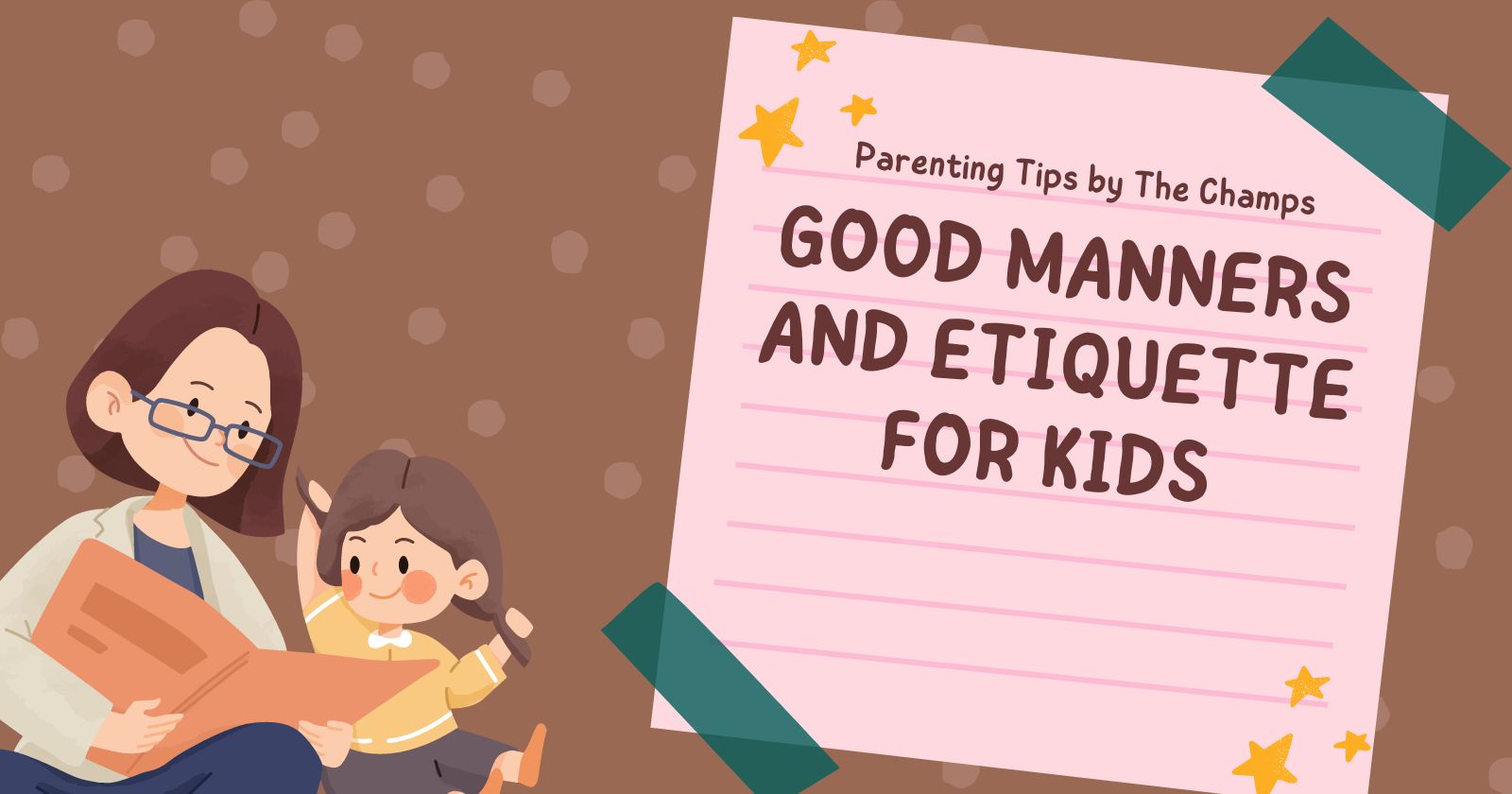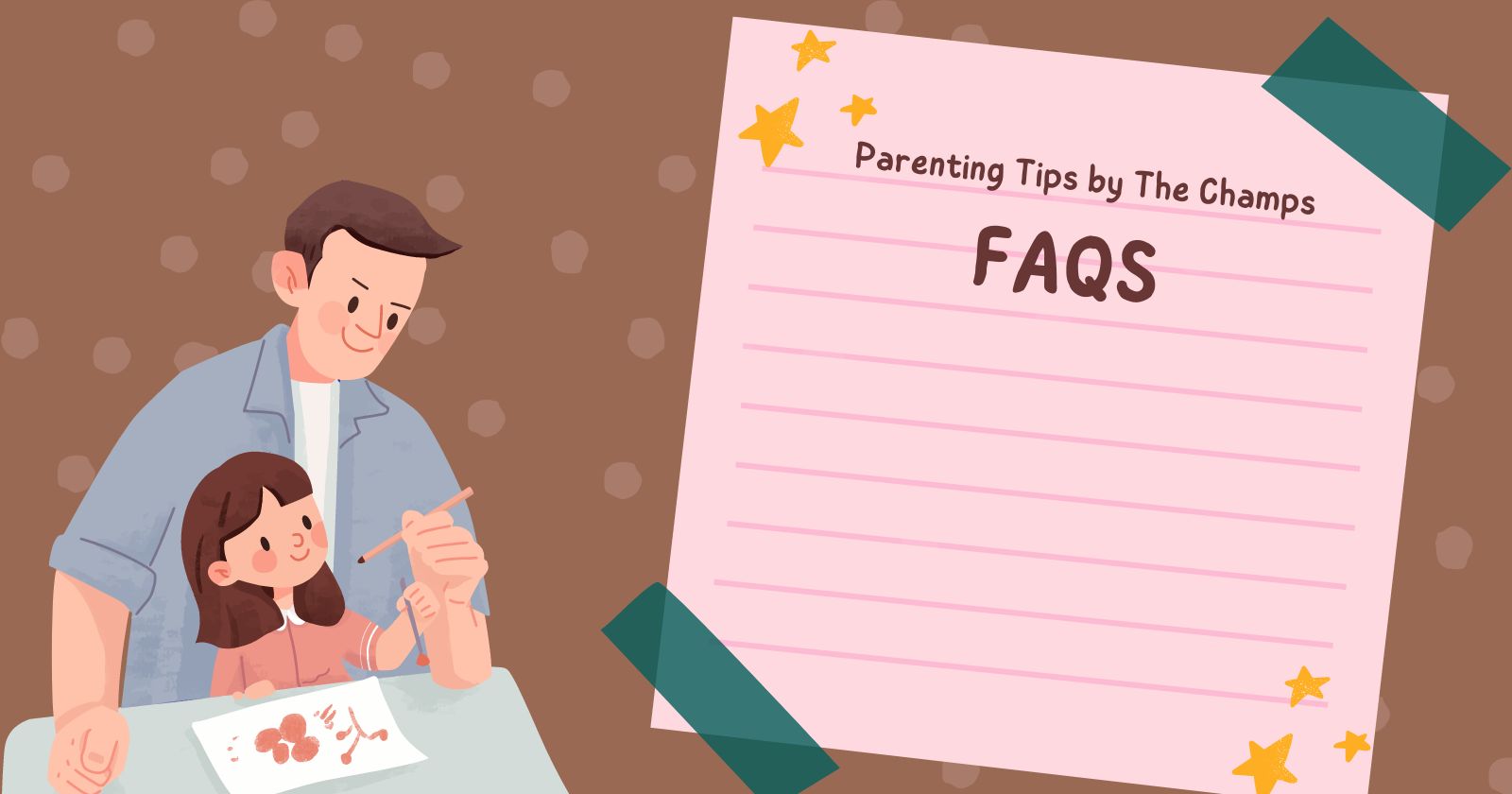Teaching good manners and etiquette to the kids is more crucial than ever in the fast-paced world of today when digital communication frequently takes precedence over in-person contact.
Early instillation of these principles promotes respect, empathy, and regard for others in addition to assisting kids in navigating social situations with ease.
It is our duty as educators, parents, or other carers to help kids navigate social situations with poise and compassion.
Early instruction in fundamental manners enables kids to engage with others with grace and confidence in a variety of contexts, including the family, school, and larger community.
look at the list of Teaching Good Manners And Etiquette To The Kids provided here.
-
Set a Good Example:
Kids pick up the most knowledge from seeing the adults in their environment. It is imperative that we, as parents or instructors, provide an example of the manners and etiquette we want our kids to inherit. Our deeds speak louder than our words, whether we are using the phrases “please” and “thank you,” engaging in active listening, or acting with kindness and empathy.
-
Practice Gratitude:
Gratitude is a strong virtue that fosters appreciation and humility. Encourage kids to say thank you for compassion towards them by doing small things like accepting a gift or witnessing acts of kindness from others. Assist them in realizing the significance of appreciating and respecting the work of others.
-
Show Empathy:
Empathy is the capacity to comprehend and experience another person’s feelings. Children should be taught to understand their peers’ feelings, opinions, and experiences. Urge them to interact with consideration and compassion to build stronger bonds and relationships.
-
Stress Politeness:
Being polite helps to promote constructive social connections. Instruct kids on fundamental manners, such as saying hello to others, speaking politely, and observing personal space. Stress to them the value of using the words “please,” “thank you,” and “pardon me” in their everyday conversations.
-
Develop Appropriate Table Manners:
Mealtimes offer excellent chances to instruct kids in table manners. Instruct them to chew with closed lips, use cutlery correctly, and converse politely while eating. Urge children to share food, wait their turn, and show gratitude for the food and company.
-
Develop Communication Skills:
Proper communication is key to creating healthy friendships. Encourage kids to communicate both orally and nonverbally courteously and straightforwardly. Instruct children to listen intently, keep eye contact, and consider other people’s emotions when conversing.
-
Establish Personal Hygiene Habits:
Proper grooming and personal hygiene are aspects of good manners. Instill in them the value of hygiene, taking frequent baths, brushing their teeth, and keeping themselves nice. Assist them in realizing the potential effects of their hygiene practices on social interactions.
-
Encourage Responsible Behaviour:
Proper manners and etiquette are characterized by responsible behavior. Instill in kids the values of accepting responsibility for their acts, abiding by laws and regulations, and thinking about how their activities will affect both other people and themselves. Motivate them to behave in a responsible, dependable, and trustworthy manner.
-
Promote Appreciation of Culture and Tradition:
In a varied society, it is crucial to comprehend and honor the various cultures and traditions that exist. Introduce kids to a range of ethnic rituals, festivals, and practices to help them value and embrace variety. Instruct them to explore foreign cultures with curiosity and an open mind.
-
Respect for Nature:
Instilling a feeling of environmental responsibility and stewardship in children is achieved through teaching good manners and etiquette to them to respect nature. Urge them to take thoughtful and caring care of the environment, plants, and animals. Instruct children on the value of cutting down on waste, preserving resources, and protecting natural areas for coming generations.
We give kids the social skills and attitude they require to manage every kind of social situation with elegance, regard, and consideration for others by educating them on these extra etiquette rules.
Read Also: 9 Step More Genuine The Best Parenting Tips For Students
FAQs:
-
Why is it crucial that kids learn proper etiquette and manners?
Teaching children manners and etiquette fosters social skills, respect for others, and awareness of various contexts. Additionally, it lays the groundwork for fruitful interactions in both their personal and professional spheres.
-
What age is appropriate to begin teaching good manners and etiquette to my child?
There’s always time to get started! As soon as youngsters begin to speak, simple manners like saying “please” and “thank you” can be introduced. You can progressively introduce more sophisticated principles of etiquette as they mature.
-
Which fundamental etiquette should I teach my child?
Sayings like “please,” “thank you,” “pardon me,” and “I’m sorry” are examples of common etiquette. It’s also crucial to teach kids how to chew with their mouths shut, wait their time, and greet people respectfully.
-
How can I pleasantly teach my child manners?
Include role-playing, games, and narrative in your teaching. Books and films are also useful visual aids for showing proper behavior.
-
How can I handle it if my child won’t behave politely?
Remind your child of the value of etiquette while maintaining your composure. Praise them when they behave well and gently criticize them when they don’t promote positive behavior.
Conclusion:
The ongoing task of teaching good manners and etiquette to the kids calls for tolerance, perseverance, and encouragement. We grant children the social skills and attitudes necessary to flourish in diverse social contexts, form deep connections, and make constructive contributions to their communities by instilling these important lessons in them at an early age. Establishing the foundation for a more peaceful and compassionate society requires us as parents, educators, and role models to place a high priority on instilling civility and respect in the next generation.
Don’t miss it: True education releases capacities and develops analytical abilities, confidence, will, and goal-setting





